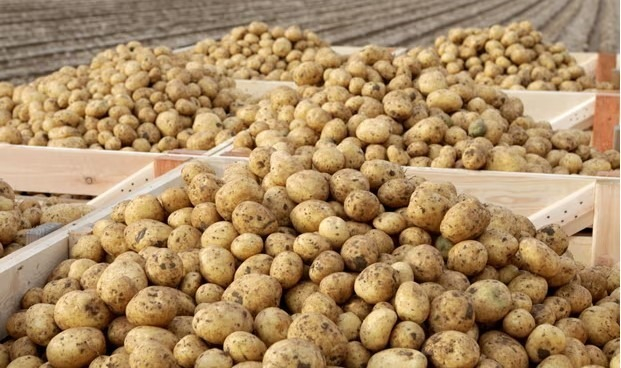The European Parliament’s recent push to ease new EU regulations on seed marketing has ignited apprehension within the potato sector, with stakeholders raising alarms about the potential risks of increased disease transmission that could result from the draft legislation.
Initially introduced by the European Commission in July, the new regulation aims to replace ten existing EU directives governing the production and marketing of Plant Reproductive Material (PRM), including a 2002 directive specifically addressing the marketing of seed potatoes.
The stance adopted by the Parliament’s Agriculture Committee (AGRI), spearheaded by Italian MEP Herbert Dorfmann of the European People’s Party (EPP), extends beyond the exemptions proposed by the Commission for certain seed exchanges. AGRI’s position suggests a further relaxation of the rules, sparking concerns within the potato sector.
Europatat, the organization representing the interests of European potato and potato seed traders, has expressed reservations about AGRI’s position, emphasizing the unique characteristics of the potato crop that could face “serious consequences” if the proposed changes are implemented.
Romans Vorss, Europatat’s technical affairs director, highlighted the potential risks associated with creating a parallel market of seeds through the proposed exceptions. He emphasized the need for checks before the movement of seeds, especially due to phytosanitary risks present when transporting potatoes across large distances within expansive farms.
Europe, a significant global producer of potatoes, maintains stringent regulations on potato imports due to the substantial phytosanitary risks involved. Vorss noted that only Switzerland currently enjoys an exemption from these rigorous rules.
As the vote approaches, Europatat is urging the Commission to reconsider the additional flexibility proposed by AGRI and revert to the original draft text put forth by the Commission to avert potential crises within the sector.
In contrast, IFOAM, the organization representing the EU’s organic farming sector, advocates for facilitating the exchange of reproductive material between farmers without excessive bureaucratic hurdles. Eric Gall, IFOAM’s deputy director, acknowledged the concerns raised by potato traders as valid but emphasized that these arguments should not burden small breeders disproportionately.
Gall clarified that the exemptions proposed by AGRI are limited and primarily intended for “non-profit” activities focused on conserving genetic diversity and supporting farmers’ use of their own seeds. He underscored that EU plant health regulations would remain in force regardless of whether seed transfers are subject to marketing rules.





